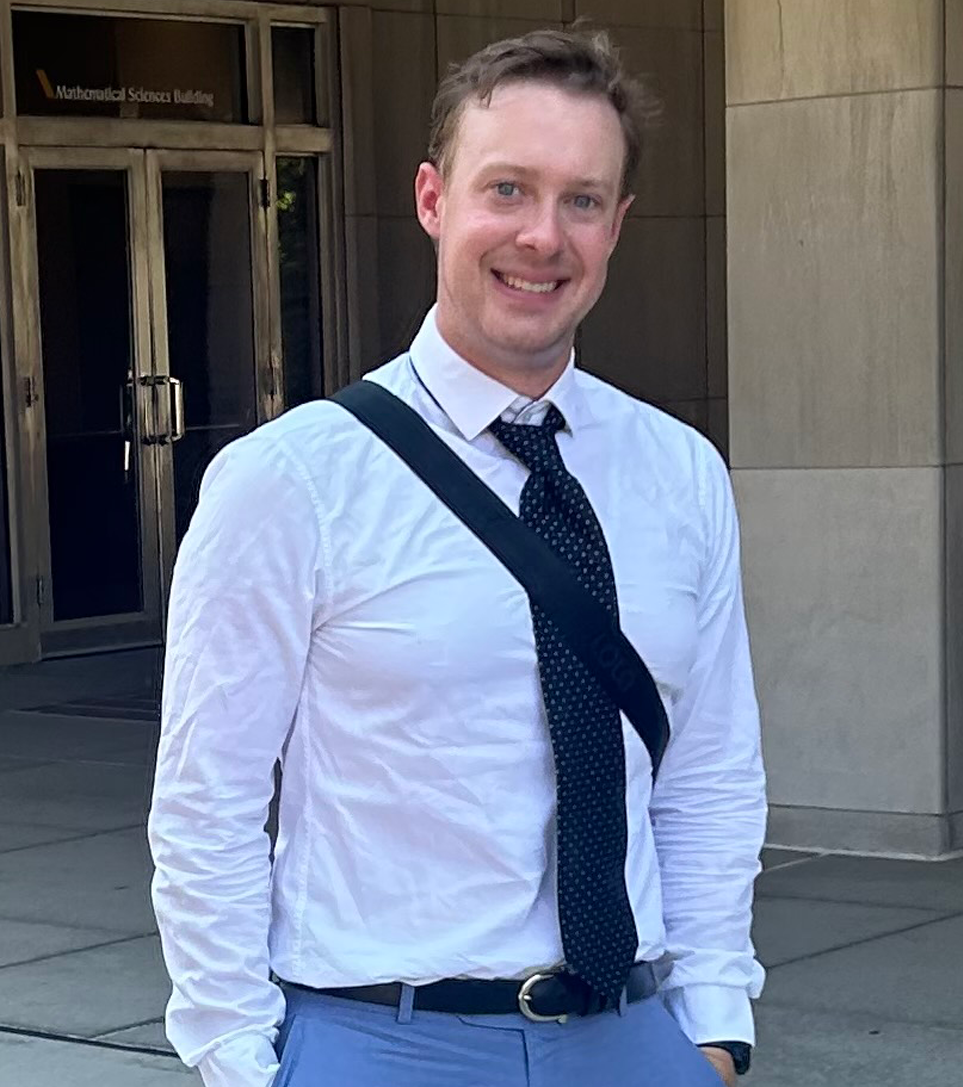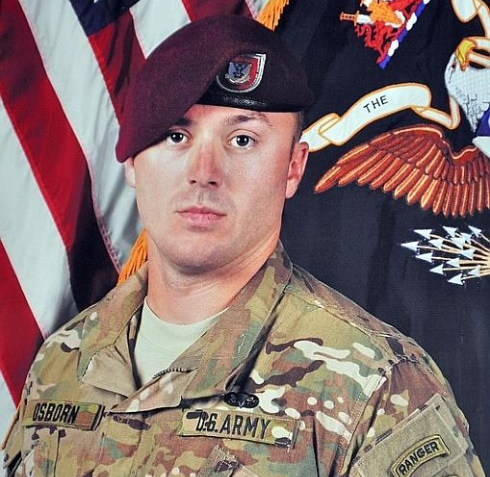Purdue Military Research Institute and Prof. Can Li, partner to offer 2024 summer fellowship in honor of fallen soldier from Lafayette
 Quinn Huckaba, a senior cadet at the United States Military Academy at West Point, has been selected as the 2024 recipient of the Purdue Military Research Institute (PMRI) Osborn Fellowship. Huckaba will collaborate with Professor Can Li from the Davidson School of Chemical Engineering in this year’s PMRI Summer Intern Program.
Quinn Huckaba, a senior cadet at the United States Military Academy at West Point, has been selected as the 2024 recipient of the Purdue Military Research Institute (PMRI) Osborn Fellowship. Huckaba will collaborate with Professor Can Li from the Davidson School of Chemical Engineering in this year’s PMRI Summer Intern Program.
The PMRI Summer Intern Program partners with Purdue faculty to identify research projects, then recruits cadets and midshipmen from U.S. military academies, Purdue’s ROTC detachments, and select undergraduates from other institutions, including participants from the Veterans to Energy Careers (VTEC) program. This initiative aims to introduce students to Purdue research and encourage them to pursue graduate studies at Purdue.
J. Eric Dietz, director of PMRI, highlighted the impact of the summer program, stating, “To date, about 200 summer interns have learned about research, written papers, filed patent disclosures, and built connections with their academies. Some have continued to work with Purdue research labs long after their internship, and several have attended Purdue for MS [and PhD degrees].”
As part of the PMRI Summer Intern Program, Huckaba will further his knowledge in machine learning and process optimization under the guidance of award-winning professor, Can Li. Their project titled, “Physics-Informed Neural Network for Complex Multiscale Engineering Systems,” aims to optimize engineering processes with limited data, using machine learning.
Huckaba will apply this research to his ongoing study of Rydberg atom sensors—a type of quantum radio with significant defense applications. These sensors can detect electromagnetic waves without emitting detectable frequencies. His work involves utilizing physics-informed neural networks to optimize the calibration and construction of these sensors, employing machine learning to streamline complex processes.
“The advantage is that you can use machine learning to calibrate anything, including Rydberg atom sensors,” explained Huckaba. “With this, we won't need a human on site who understands quantum mechanics to recalibrate the sensors every time.”
Working with Professor Li will also provide Huckaba the opportunity to further his knowledge and skill in optimization and applied mathematics. He aims to leverage this expertise to enhance the technological capabilities of the military, ensuring soldiers have the best possible resources and information.
 The Osborn Fellowship, named in honor of Sergeant Kyle Osborn, holds deep significance for Huckaba. Sergeant Osborn was a 2005 Lafayette, IN McCutcheon High School graduate, who was killed in action September 13th, 2012, in Afghanistan. Each year, the Osborn family gifts funds to West Point to give a cadet like Huckaba, the opportunity to visit and conduct research at Purdue.
The Osborn Fellowship, named in honor of Sergeant Kyle Osborn, holds deep significance for Huckaba. Sergeant Osborn was a 2005 Lafayette, IN McCutcheon High School graduate, who was killed in action September 13th, 2012, in Afghanistan. Each year, the Osborn family gifts funds to West Point to give a cadet like Huckaba, the opportunity to visit and conduct research at Purdue.
“Service members frequently face life-threatening situations in the line of duty. As someone in the service myself, that hits close to home because it could be my friend or me,” Huckaba reflected.
Driven by the desire to minimize such risks through technological advancements, Huckaba encourages aspiring STEM majors and military personnel to persevere despite challenges.
“I want to tell everyone out there who wants to be a STEM major or join the Army that the people who succeed are those who keep trying. They have a goal and they go for it. That’s what I’m doing right now, and that’s the message I would share with anyone pursuing similar paths.”
Huckaba expressed his gratitude to Purdue University and the founders of the Osborn Fellowship for their trust and support, enabling him to continue his academic pursuits and make a meaningful impact.
About PMRI’s Summer Internship Program
PMRI works with military service branches to deliver technological solutions and educate and mentor officers in a Joint Service environment at Purdue. The Cadet/Midshipman Summer Undergraduate Research Program for Academy and Purdue ROTC students allows future military leaders to work in the lab beside and learn from PMRI officers who are solving the military’s most complex problems. The program mirrors civilian student opportunities where possible, though our military students will have visits averaging only 4-5 weeks due to their requirement to attend other summer training. Many of these students have enjoyed success with co-authorship of papers, patent disclosures, and participation in Purdue Graduate programs.
Learn more about Purdue Military Research Institute
